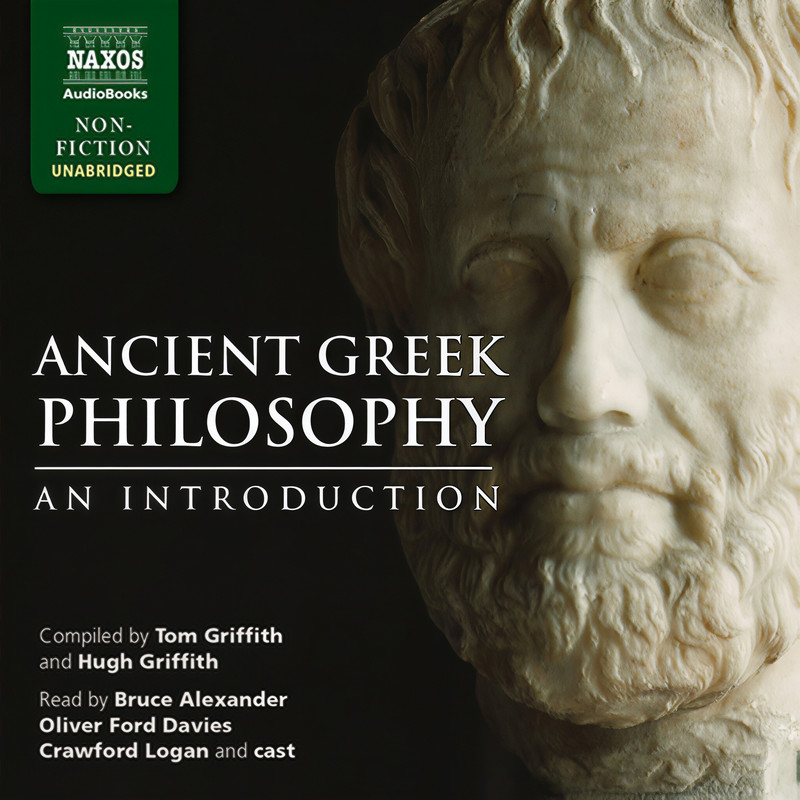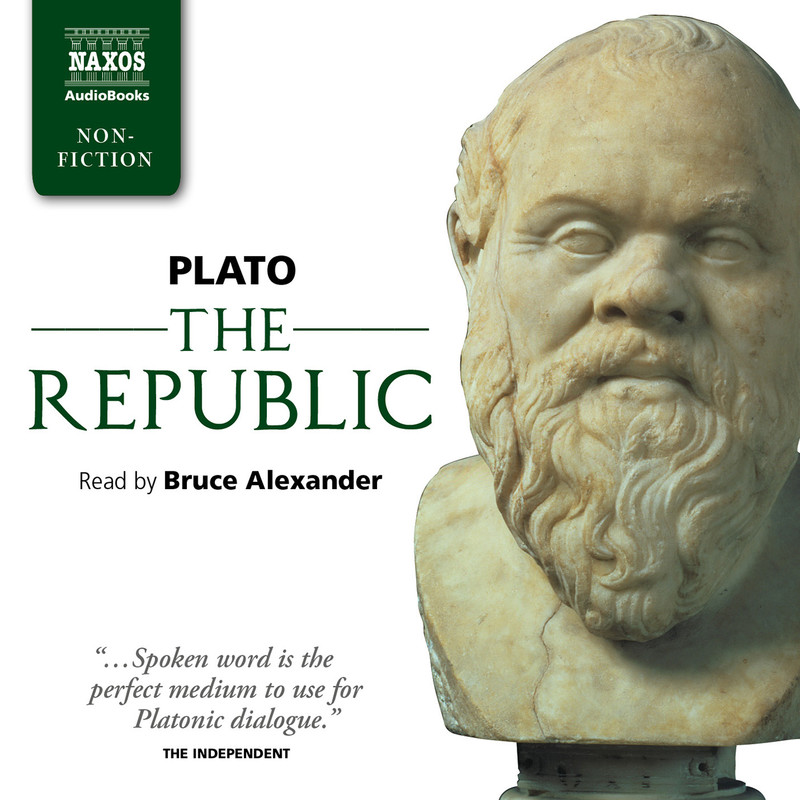
GRIFFITH, T.: ANCIENT GREEK PHILOSOPHY - An Introduction (Unabridged)
Bruce Alexander
2007-06-01
专辑简介
专辑曲目
1
Narrator: Philosophy arises out of two fundamental questions:
Bruce Alexander
2
Diogenes: After engaging in politics he became a student of nature.
Bruce Alexander
3
From Book IX, on Heraclitus
Bruce Alexander
4
From Book II, on Anaxagoras
Bruce Alexander
5
From Book VIII, on Pythagoras
Bruce Alexander
6
From Book IX, on Democritus
Bruce Alexander
7
Narrator: In general, it is probably fair to say …
Bruce Alexander
8
Meno: There will be no difficulty, Socrates …
Bruce Alexander
9
Socrates: That would be your mode of speaking?
Bruce Alexander
10
Meno: Well then, Socrates, virtue, as I take it …
Bruce Alexander
11
So, the man proposes the death penalty
Bruce Alexander
12
I can imagine someone saying …
Bruce Alexander
13
I am now departing …
Bruce Alexander
14
Suppose it's a total absence …
Bruce Alexander
15
Meno: And how will you enquire, Socrates …
Bruce Alexander
16
I now want to know whether you still …
Bruce Alexander
17
Narrator: There is an exact parallel here …
Bruce Alexander
18
So, in his desire to create …
Bruce Alexander
19
Narrator: Plato
Bruce Alexander
20
Is not thirst the desire which the soul has …
Bruce Alexander
21
Suppose that a man thinks he has done wrong
Bruce Alexander
22
Narrator: So in the ideal city or state …
Bruce Alexander
23
I dare say that you remember …
Bruce Alexander
24
Narrator: Ideally, then, philosophers should …
Bruce Alexander
25
Narrator: Not democracy, then …
Bruce Alexander
26
Narrator: Before we say that no-one …
Bruce Alexander
27
The body is more like the other …
Bruce Alexander
28
Narrator: The final selection from Plato …
Bruce Alexander
29
By all means, he said, tell us …
Bruce Alexander
30
You would say, would you not …
Bruce Alexander
31
This entire allegory …
Bruce Alexander
32
Narrator: It may be that, for Anglo Saxon …
Bruce Alexander
33
Aristotle: All men by nature desire to know …
Bruce Alexander
34
We have said in the Ethics …
Bruce Alexander
35
The Nicimecion Ethics
Bruce Alexander
36
Aristotle: And now let us revert to the good …
Bruce Alexander
37
We must now enquire, concerning happiness …
Bruce Alexander
38
Book II, 1 - 3
Bruce Alexander
39
Thus it is therefore …
Bruce Alexander
40
Book VIII, 1 - 3
Bruce Alexander
41
But must they not add that the feeling …
Bruce Alexander
42
Book X, 1 - 3
Bruce Alexander
43
What is there then of such a nature?
Bruce Alexander
44
Book X, 6 -7
Bruce Alexander
45
Now, if Happiness …
Bruce Alexander
46
Narrator: The Politics
Bruce Alexander
47
Now, if in this particular science …
Bruce Alexander
48
Book III, 6 -7
Bruce Alexander
49
Book III, 11 and 13
Bruce Alexander
50
Now, in general, a citizen is one who …
Bruce Alexander
51
Book IV, 4
Bruce Alexander
52
If, then, these things are necessary …
Bruce Alexander
53
Book IV, 11 - 13
Bruce Alexander
54
Those who made conquests in Greece …
Bruce Alexander
55
Book VIII, 1- 3
Bruce Alexander
56
There are four things …
Bruce Alexander
57
Narrator: The Stoics annd the Epicureans
Bruce Alexander
58
Diogenes: The ethical branch of philosophy …
Bruce Alexander
59
Virtue, in the first place …
Bruce Alexander
60
Of mental goods, some are habits …
Bruce Alexander
61
The term 'indifferent' has two meanings
Bruce Alexander
62
According to the Stoics …
Bruce Alexander
63
Also they say there are three emotional …
Bruce Alexander
64
But Hericlaedes of Tarsus …
Bruce Alexander
65
Narrator: Stoicism became very influential …
Bruce Alexander
66
In the first place …
Bruce Alexander
67
The repetition at such length …
Bruce Alexander
68
Falsehood and error always depend …
Bruce Alexander
69
We must consider the minimum …
Bruce Alexander
70
Next, keeping in view our perceptions …
Bruce Alexander
71
There is the further point to be considered …
Bruce Alexander
72
There is yet one more point …
Bruce Alexander
73
And, when once we have attained all this …
Bruce Alexander
74



